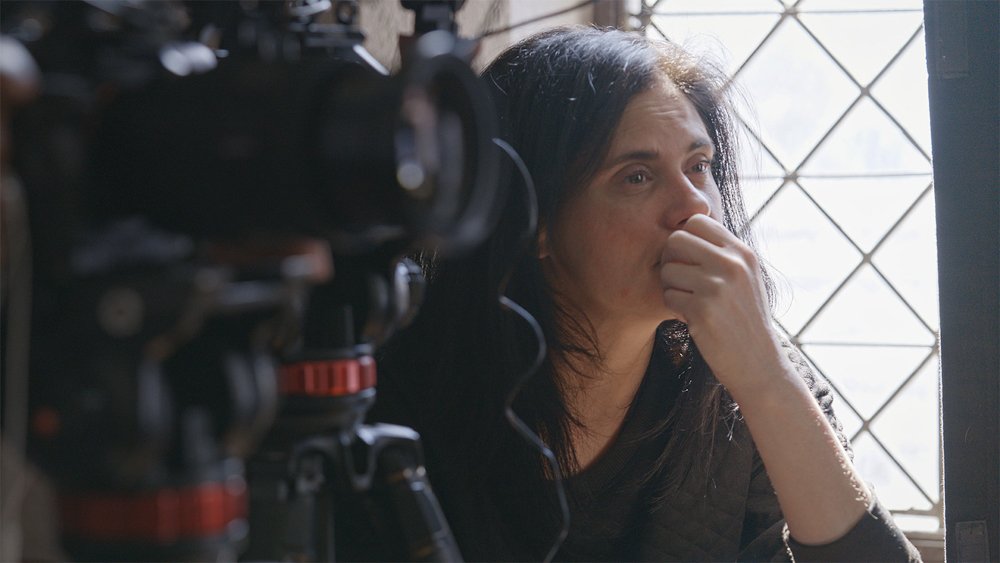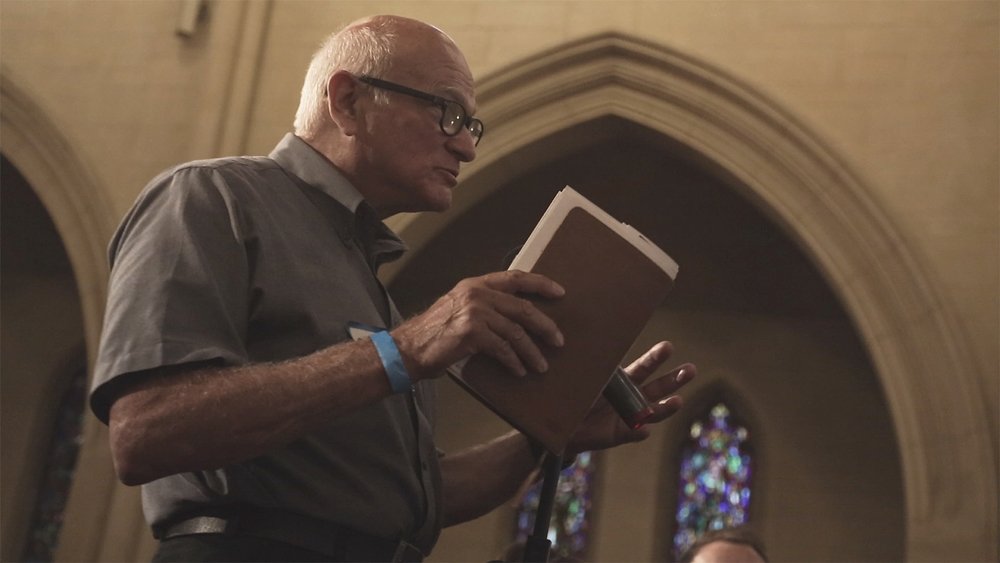1946: The Mistranslation That Shifted Culture uncovers damage of a single word, at the Vancouver Playhouse August 16
Documentary traces introduction of the term “homosexual” to Bible in mid-20th century, spurring decades of prejudice, at Vancouver Queer Film Festival
Filmmaker Sharon Roggio and her preacher father.
1946: The Mistranslation That Shifted Culture screens at the Vancouver Playhouse on August 16 at 7 pm as part of Vancouver Queer Film Festival
SCHOLARLY RESEARCH takes compelling form at Vancouver Queer Film Festival this week with a new documentary that challenges Christians who use the Bible to fuel anti-gay rhetoric.
With the help of Greek scholars and other experts, the film traces the first use of the word “homosexual”—in any language, in any translation—to a 1946 rewrite of the Good Book.
Digging back into centuries of Bibles, academics and activists find that word to be an incorrect translation of complex Greek terms that referred to behaviours, not sexuality, as sins. The Bible emerges as a kind of centuries-old game of telephone, its messages morphing according to the cultural climate of the times. Scary, when you consider up to 30 percent of Americans believe the Bible is the actual word of God.
Even as the Bible’s rewrite was in progress in the middle of the last century, one minister warned that the faulty passage could be used as a “sacred weapon” against the queer community. Filmmaker Sharon Roggio documents the way that warning came true, ramping up amid conservative Christians during the Reagan era—and continuing today.
Roggio humanizes all this research by interweaving the story of how she’s been forced to grapple with the topic in her own life. When the filmmaker came out at 16, her preacher father immediately turned his attentions to saving her soul from damnation, citing Bible verses he clings to throughout the film.
Advocating tolerance on all sides, Roggio also speaks to gay Christians who have managed to reconcile their queerness and faith—helped by the perspective that the Bible is an evolving and often allegorical document.
But you don't need to be religious to be fascinated by this deep dive into the impact of a single word.















